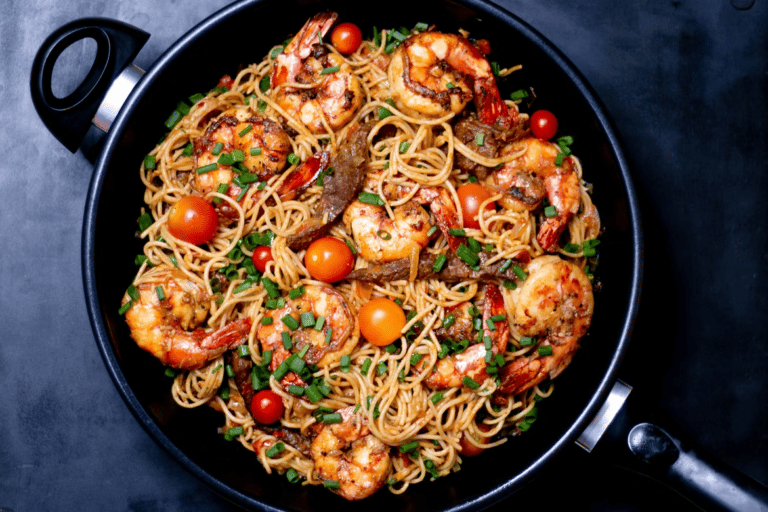Protein is an essential macronutrient that plays a crucial role in our overall health and well-being. It builds and repairs tissues, produces enzymes and hormones, and supports muscle growth and maintenance, among other vital functions. When it comes to protein-rich foods, eggs are often considered one of the best sources.
Eggs are a complete protein source, containing all 9 essential amino acids our bodies need. A single large egg has around 6 grams of protein, about 12% of the recommended daily intake for adults. But how much protein is actually in one egg? In this article, we will tell you the nutritional value of eggs, focusing specifically on the amount of protein in one egg. So, scroll down to know more!
Key Takeaways:
- Eggs are a high-protein diet that contributes to weight loss, muscle building, and overall health.
- One large egg contains about 6-7 grams of protein.
- The white part of the egg is almost pure protein, while the yolk contains essential fat-soluble vitamins and minerals.
- Due to their high biological value (BV), eggs are an excellent source of protein.
In This Article
Nutritional Value Of Eggs
Eggs are a staple food that is not only versatile but also packed with essential nutrients. They are an excellent source of high-quality macronutrients, making them a valuable addition to a balanced diet. Protein intake is vital for maintaining and building muscle mass, and eggs are considered one of the best protein sources.
However, eggs are also rich in vitamins A, B2, B6, B12, D, E, and K. These vitamins play crucial roles in various bodily functions such as cell growth, immune system support, and nerve function. Eggs also contain minerals like calcium, phosphorus, and zinc that contribute to bone health, energy production, and immune function.
Here is an overview of the macronutrient content typically found in eggs according to its size:
| Nutritional Parameter | 48 grams
Eggs |
58 grams
Eggs |
68 grams
Eggs |
78 grams
Eggs |
100 grams
Eggs |
| Energy (kcal) | 54 | 66 | 78 | 90 | 131 |
| Fat (in grams) | 3.7 | 4.6 | 5.4 | 6.2 | 9.0 |
| Saturated fat (in grams) | 1.0 | 1.3 | 1.5 | 1.7 | 2.5 |
| Monounsaturated fat (in grams) | 1.4 | 1.7 | 2.0 | 2.4 | 3.4 |
| Polyunsaturated fat (in grams) | 0.6 | 0.7 | 0.9 | 1.0 | 1.4 |
| Carbohydrates (in grams) | N/A | N/A | N/A | N/A | N/A |
| Sugar (in grams) | N/A | N/A | N/A | N/A | N/A |
| Protein (in grams) | 5.2 | 6.4 | 7.5 | 8.7 | 12.6 |
| Salt (in grams) | 0.16 | 0.20 | 0.23 | 0.27 | 0.39 |
How much protein in an egg?
As we said above, an average-sized egg contains around 6-7 grams of protein. Although eggs are often praised for being a rich source of high-quality protein, the amount of protein in an egg can vary based on its size.
On average, a large egg weighing around 50 grams, contains approximately 6.3 grams of protein. This makes eggs a convenient and nutrient-dense choice for individuals looking to increase their protein intake.
To understand the protein content in different sizes of eggs, let’s take a look at the following breakdown:
- Small egg (38 grams): Contains approximately 4.79 grams of protein.
- Medium egg (44 grams): Contains about 5.54 grams of protein.
- Large egg (50 grams): Contains about 6.3 grams of protein.
- Extra-large egg (56 grams): Contains about 7.06 grams of protein.
- Jumbo egg (63 grams): It contains approximately 7.94 grams of protein.
Furthermore, protein requirements in eggs can also vary depending on the way they are cooked. A hard-boiled egg may contain slightly more protein compared to a scrambled or fried egg due to the different cooking methods and possible additional ingredients used.
How much protein do egg yolks and egg whites contain?
Protein in an egg is distributed between the egg white and yolk. The egg white contains most of the protein, while the egg yolk contains both protein and fat-soluble vitamins and minerals.
To be precise, around 57% of the protein in one egg comes from the white part, while the remaining 43% is found in the yolk. This means that a large egg white contains about 3.6 grams of protein per serving, while the yolk contains around 2.8 grams.
Moreover, if a person removes the yolk and consumes only the egg white, they will still get a good amount of protein (around 87% of the total protein in one whole egg). Eating eggs with the yolk intact can also provide essential nutrients, such as choline, which is crucial for brain development. However, the saturated fat present in egg yolks should be consumed in moderation.
Do Raw Eggs Have More Protein Content?
Eating raw eggs may seem like an efficient way to boost your protein intake, but is it safe? Raw eggs do contain slightly more protein per gram of weight since cooking can cause some loss due to denaturation. However, raw eggs also come with potential health risks such as Salmonella infection.
According to the CDC (Centers for Disease Control and Prevention), consuming raw or undercooked eggs can lead to salmonellosis. Cooked eggs, on the other hand, are free from this risk and still offer a significant amount of high-quality protein.
Moreover, both raw whole eggs and hard-boiled eggs contain 6.3 grams of protein, but whole-fried eggs have a slightly lower protein content of around 5.46 grams. Generally, eating raw eggs also causes blood sugar spikes and affects biotin absorption in the body. Therefore, according to the Recommended dietary allowance (RDA), it’s safe to eat 1–2 cooked eggs per day for healthy adults.
Why including eggs in a balanced diet is important?
Eggs are a nutrient-dense food that can provide several health benefits, making them an essential part of a well-balanced diet. Along with being a great source of protein, they also contain important vitamins and minerals like:
- Folate
- Vitamin D
- Vitamin B12
- Iron
- Vitamin A
- Vitamin E
- Vitamin K
- Selenium and choline.
However, these nutrients play crucial roles in maintaining the body’s overall health. Despite being low in calories, eggs are also highly satiating and can help control appetite, thereby helping to lose weight.
Tips for incorporating eggs into your diet:
- Hard-boiled eggs make a convenient snack option or addition to salads.
- Add eggs to your breakfast by making an omelet or scrambling them with pumpkin seeds or kidney beans.
- Try incorporating eggs into your lunch or dinner by making a frittata or quiche.
- Use eggs as an ingredient in baking, such as cakes and muffins.
Furthermore, eggs with Greek yogurt, spinach, and salmon make an excellent protein-packed meal. Adding eggs to your diet can help you meet your daily protein requirements while providing a wide range of essential nutrients.
The Bottom Line
To sum it up, eggs are a highly nutritious food that contains a good amount of high-quality protein, essential vitamins, and minerals. They make an excellent addition to any meal or snack as they provide numerous health benefits and can help meet daily protein requirements. You can include black beans, lentils, and veggies with eggs in your diet to boost its nutritional content. However, it’s essential to have eggs in moderation and choose healthy cooking methods to reap their maximum benefits while avoiding potential risks. So, go ahead and enjoy your eggs as part of a well-balanced diet!
FAQs
How many Eggs Are Enough For A Complete Balanced Diet?
The number of eggs needed for a completely balanced diet depends on individual dietary needs and goals. In general, consuming up to 1-2 eggs per day as part of a healthy eating pattern is considered appropriate.
Is boiled egg good for protein?
Yes, boiled eggs are an excellent source of lean protein. They contain all the essential amino acids necessary for muscle growth and repair. Including boiled eggs in your diet can help meet your protein needs healthily.
How much protein do 4 eggs give you a day?
Four eggs provide approximately 24 grams of protein, making them a valuable source of this essential macronutrient. Including four eggs in your daily diet can help meet your protein needs.
Does fried egg have protein?
Yes, fried eggs still retain their protein content. While cooking methods like frying may slightly reduce the overall nutrient profile, a fried egg can still be a good source of protein, with roughly 6 grams per egg.
Does boiling eggs destroy nutrients?
Boiling eggs can cause some nutrient loss, as heat can break down certain vitamins and minerals. However, the impact on protein content is minimal. Overall, boiled eggs still provide a good source of nutrients, including protein.
Reference:











